Whether you are someone thinking of becoming a medical interpreter, are about to take your medical interpreter exams or are a seasoned interpreter wishing to expand your knowledge of all things medicine, you will need resources – to help you learn more, to bolster your knowledge of medical terminology, and to practice interpreting skills. One way to access such resources is to take a training course – and in fact, both organizations certifying medical interpreters on the national level require interpreters to take at least 40 hours of training. Outside of prerequisite training, there are hundreds of opportunities to get those CEUs (continuing education units) that are required for re-certification. There are training opportunities that are free or paid, online or in person, lasting from 2 hours to 3 days. But what if you want to learn about medical topics outside those formal training sessions? Something you can do as part of your leisure time, or maybe on the go while you’re commuting to work? Something that is free?
In my previous two posts, I wrote about using TV shows like Grey’s Anatomy as a resource for medical interpreters and described the ways books about doctors and medicine can help medical interpreters not only to gain more knowledge but also to hone their interpreting skills. In this post, I`m going to talk about the third source of information and skills practice – podcasts. For those of you who are new to this concept, I will explain what podcasts are and where to find them, and I will also provide a list of podcasts about health and medicine as well as a list of episodes centered on the topic of medicine from podcasts that are not medical in nature.
🎙️ [click to expand] What are podcasts?
A podcast is a program that is similar to a radio show, but instead of being broadcast over the radio, it is published on the internet. Some, usually shorter podcast episodes come out daily, while others are posted weekly or even monthly. Podcasts are usually free, which is why you will often hear ads at the beginning of or throughout an episode.
💡[click to expand] Why should medical interpreters listen to podcasts?
The great thing about podcasts is that they are free, of course. In addition, most podcasts in this list are either presented by healthcare professionals or, in cases where a podcast’s main focus isn’t medicine, are extremely well-researched.
You can listen to podcasts wherever and whenever, including in situations where sitting down with a book or watching something is impossible or inconvenient – when you are out for a run, when you’re walking your dog, when you’re shopping, doing boring household chores, commuting to work… Basically, any time your ears are free to listen and it is safe for you to do so!
Podcasts are good for more than just expanding your knowledge of medical topics and medical terminology. You can actually use them to practice interpreting skills!
- You can use podcasts for consecutive interpreting practice. For example, using the Surgery 101 podcast, you can practice interpreting for a surgeon explaining to a patient the purpose of a surgery, how it will be done, what some common complications are and what the recovery period should look like. You can also practice your note-taking skills!
- You can also practice your simultaneous practicing skills by shadowing the reader – this will give you an added advantage with getting comfortable pronouncing complex medical words. For example, the more formal name for ‘removal of gallbladder’ is ‘Cholecystectomy’. Now try saying ‘Laparoscopic Cholecystectomy’ quickly without looking the pronunciation up!
📻 [click to expand] Where do I find podcasts?
There are several ways to listen to podcasts:
- You can listen on your laptop or tablet – simply go the podcast’s webpage by clicking on the links throughout this article.
- You can download podcast episodes as mp3 files and save them on your mp3 player or your phone.
- You can listen to podcasts on your smartphone by downloading one of the many free podcast apps. Once you have downloaded the app, simply search for a podcast or a podcast episode by name, or look for podcasts by category (e.g. Medicine). You can subscribe to a podcast so that you automatically receive new episodes as they become available, or manually download the episodes you are interested in. When you play podcasts, the app will automatically save your bookmarks – that is, if you pause, or switch between episodes, and then go back to that episode, it will resume playing exactly where you paused it. Users of Apple devices (e.g. iPhone and iPad) have the option of using the Podcasts app that is free and fairly easy to use and here are some options for the users of Android devices.

The simplest way to find an app to listen to a podcast with would probably be to go to Apple Store or Google Play on your phone, type in ‘podcasts’ and browse through the options until you find what works for you. I personally use the Podcasts app that came installed in my iPhone. For long road trips or long hikes, I download a bunch of episodes onto my old iPod mp3 player to avoid cluttering my phone memory (and also to preserve the phone battery).
Now that we figured out how to listen to podcasts, let’s look at the list of podcasts and podcast episodes about medicine and health that I put together for you. Please note that links in the title of each episode or podcast will take you to a webpage for that episode or podcast. If you wanted to listen to them in your podcast app, open the app and search for them by name!
List of Podcasts About Medicine and Health

Episode Two dives deep into what happens on a Covid 19 Intensive Care Unit at Harborview Hospital in Seattle, ground zero for the US outbreak. We meet Matthew Cazier, a critical care Registered Nurse working in these dangerous and challenging units. We hear how patients are helped when they are in crisis, the sometimes desperate measures staff undertake to keep patients alive and how healthcare workers keep each other safe from a potentially deadly virus. We learn how lungs work and how ventilators work
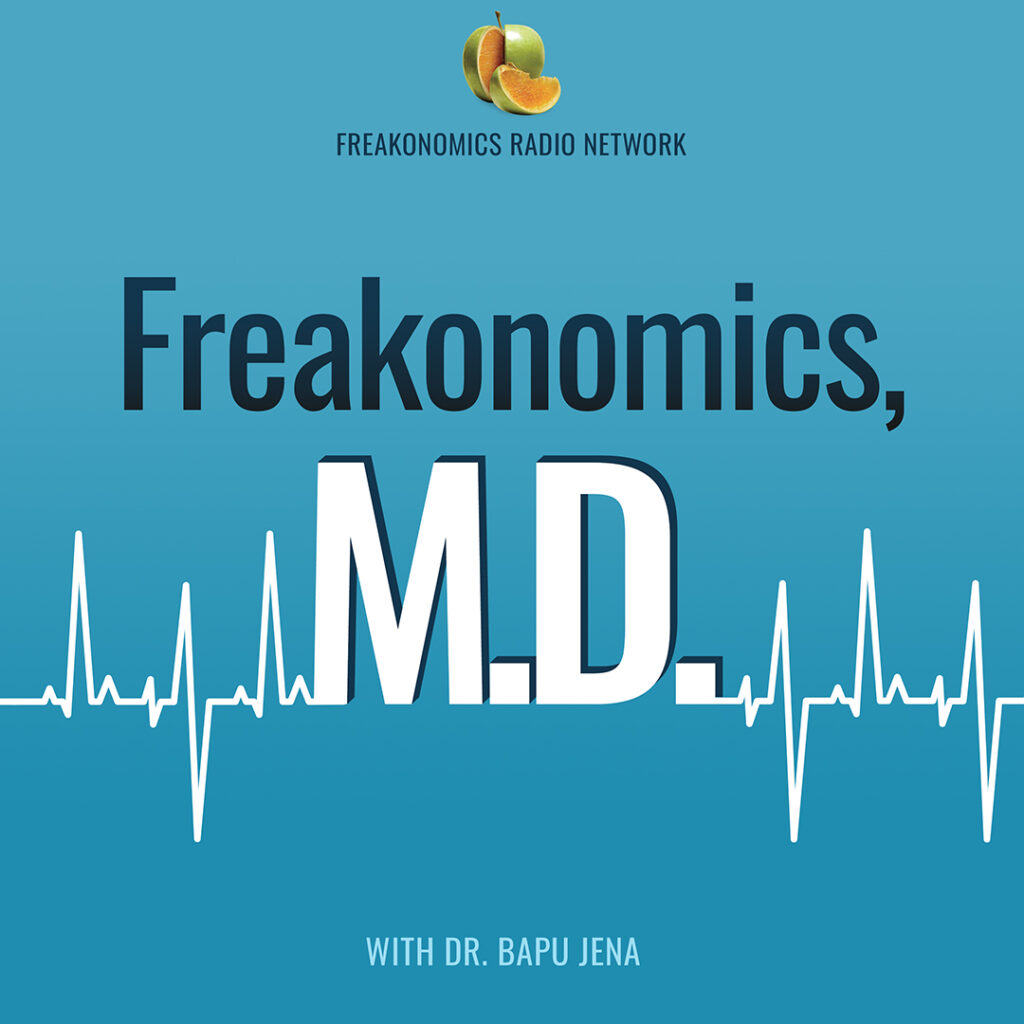
“It’s the Freakonomics of medicine, with host Dr. Bapu Jena. Each week, the Harvard physician and economist will dig into a fascinating study at the intersection of economics and healthcare. He takes on questions like: Why do kids with summer birthdays get the flu more often? Can surviving a hurricane help you live longer? What do heart surgery and grocery-store pricing have in common?”
Sample episode:
Episode49: Why Don’t We Have a Cure for Alzheimer’s?
Promising drugs keep failing in trials. Allegations of fraud have cast a shadow over the field. An expert explains why Alzheimer’s treatments have been so hard to find — and why one clue may lie in the Andes Mountains.
Chasing Life with Dr. Sanjay Gupta

Did you know that some people can taste colors and others have a hard time recognizing faces? This season on Chasing Life, Dr. Sanjay Gupta takes listeners beyond the basics of sight, sound, smell, taste and touch to explore unique sensory experiences. Discover why psychedelics might change your worldview, how animals perceive differently than humans, and how biases in taste might impact the future of food production.”
Sample episode:
How do you treat a disease where the cause is unknown and each patient’s symptoms are unique? CNN’s Chief Medical Correspondent Dr. Sanjay Gupta talks to pain expert Dr. Carmen Green about what causes chronic pain, how it can be treated, and which patients are more likely to get care. Plus, meet a man who feels no pain and a woman who figured out how to cope with hers. This episode originally aired in November 2021.

“The podcast about healthcare, the science of medicine and everything in between. Join cohosts Kendall Britt, MD and Amy Rogers, MD for a 15-minute check-up on current issues in medicine and health policy.” This is a nice podcast that’s not too long and it gives you a nice overview of various medical issues.
Sample episode:
Episode 81: Lyme Disease – What It Is and What It Isn’t
Lyme Disease has been a known tick-borne infectious disease since the early 80s. Treatment for Lyme Disease is surprisingly straightforward, but you would never guess that from the controversy surrounding the infection. Part of the problem stems from “Chronic Lyme Disease,” which is now more appropriately known as Post-Treatment Lyme Disease Syndrome, to indicate that the infection is no longer present in these patients. There is some explanation for their symptom other than persistent bacteremia. Today we talk about all this, and dig into a little of the history and the controversy surrounding Lyme Disease.

This podcast calls itself ‘a tiny podcast about fascinating stories in clinical medicine”. Hosted by Dr. Adam Rodman, an academic global health hospitalist, this podcast is anything but tiny. Every episode is extremely well-researched (just look at the list of references for this episode!). The episodes are, on average, about 30 minutes long and they offer a fascinating look at medical history as well as some interesting stories.
Sample episode:
Episode 34: The Physical
The physical exam has become a ritual of the modern doctor’s appointment, with pokes, prods, and strange tools. How did this become a normal thing to do? In this episode, I’ll discuss how the physical exam went from the medieval examination of a flask of urine to basically what we have today in just a few decades in early 19th century France, and how the exam is still developing in the 21st century.
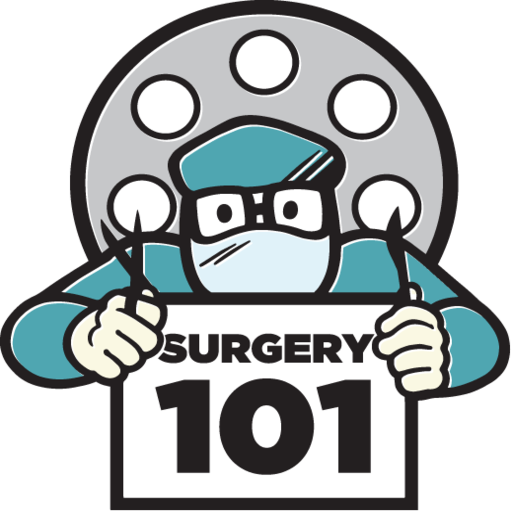
“Welcome to Surgery 101, a series of podcasts produced with the help of the University of Alberta in Edmonton, Canada. The podcasts are intended to serve as brief introductions or reviews of surgical topics for medical students. We’ve aimed to cover a single topic in between 10-20 minutes so that you can quickly get a good idea of the basic concepts involved. Every episode is divided into chapters and concludes with several key points to summarize the topic.” Just like I love Grey’s Anatomy for starting off with interns who learn all about surgery (and so do you as you watch!), I like this podcast because it is aimed at medical students. Episodes varying in length from 3 to 20 minutes will help you gain an understanding of common surgeries and hear how they might be explained to a patient.
Sample episode:
247. Laparoscopic Cholecystectomy
In this podcast General Surgeon, Dr. Michael McCall, is going to discuss the Cholecystectomies.
After listening to this podcast you should be able to:
Explain the procedure to a patient
Discuss the risks and possible complications
Sawbones: a Marital Tour of Misguided Medicine

“Dr. Sydnee McElroy and her husband Justin welcome you to Sawbones: A Marital Tour of Misguided Medicine. Every Friday, they dig through the annals of medical history to uncover all the odd, weird, wrong, dumb and just gross ways we’ve tried to fix people over the years. Educational? You bet! Fun? We hope!”. Don’t be put off by the very loud theme song at the beginning of each episode: this podcast is very educational with Dr. McElroy sharing her own insights into medicine as well as her research into medical history and current practices.
Sample episode:
Sawbones: The Placebo Effect
If the pill you’ve been taking has been helping you, but it’s really made of sugar, would you want to know? Those and other thrilling ethical questions await in our discussion of the placebo effect.
Psychiatry & Psychotherapy Podcast

“Join David Puder, M.D. as he covers different topics on psychiatry and psychotherapy. He will draw from the wisdom of his mentors, research, in-session therapy and psychiatry experience, and his own journey through mental health to discuss topics that affect mental health professionals and pop psychology enthusiasts alike. Through interviews, he will dialogue with both medical students, residents and expert psychiatrists and psychotherapists, and even with people who have been through their own mental health journey. This podcast was created to help others in their journey to becoming wise, empathic, genuine and connected in their personal and professional lives.”
Sample episode:
The History, Mechanism and Use of Antidepressants
In this week’s episode of the podcast, Dr. Michael Cummings and I talk about the history of antidepressants, and their use in overcoming depression and anxiety disorders.
TMC Podcast: Interviews with Medical Specialists

The Medical Collaborative Podcast is a podcast series where we interview medical specialists to find out specifics about their specialty. These specifics include how they came to be in their specialty, what other specialties they considered, what their average day is like, the ups and downs that they experience, their work-life balance and their advice for medical students and interns. Whether your interest is cardiology, pediatrics, orthopedics, GP or other, TMC has you covered. The episodes are 20-60 minutes long and offer a great overview of medical specialties and a great opportunity to develop your medical vocabulary!
Sample episode:
TMC040: ICU with Dr Stephen Warrilow
Dr Stephen Warrilow is the director of ICU at the Austin Hospital in Melbourne. Dr Warrilow discovered his passion for ICU after a stint at Bendigo during his junior doctor years. He was particularly fascinated with the “breadth of practice” ICU offered, not focusing on a single organ system but instead looking after complex medical and post-operative patients. It also allowed him to stay in touch with his procedural side, work in a “team-based approach” and see the effects of his decisions in “real time”.

This BBC podcast talks about health issues and medical breakthroughs from around the world, with episodes around 15-30 minutes long. I like that this podcast features human interest stories by including interviews with healthcare professionals as well as patients and survivors of the diseases mentioned in the podcast.
Sample episode:
Does the Treatment for Cardiac Arrest Need to Change?
An injection of adrenaline, or epinephrine as it is known in the US, is often given to boost chances of survival after a cardiac arrest. However, a recent study indicates the benefits of adrenaline are small and its use nearly doubles the chances of surviving with brain damage. Claudia speaks to Gavin Perkins, professor of Critical Care at Warwick Medical School, who was one of the team running the trial conducted with ambulance crews in the UK over several years. The results have just been published in the New England Journal of Medicine.
Living While Dying: an ALS Story
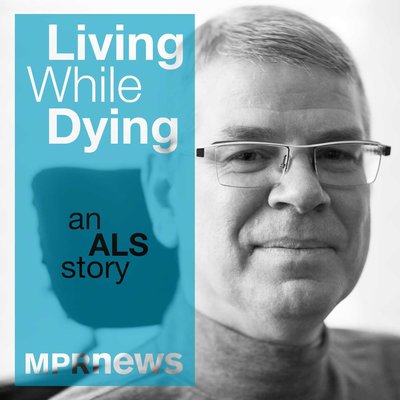
“When he was first diagnosed with ALS — Amyotrophic Lateral Sclerosis, or Lou Gehrig’s Disease — on Dec. 6, 2010, Bruce Kramer was dean of the School of Education at the University of St. Thomas.” In this podcast, he shares his heart-breaking journey with his listeners.
Sample episode:
Episode 30. Tipping point:
As ALS continues to diminish his physical capacity, Bruce Kramer considers when his condition will reach a tipping point. Bruce and his wife Ev rethink Bruce’s end of life directives.

“Only Human is a show about health that we all can relate to. Because everybody has a story.” While I`m not a huge fan of the last two seasons, called Realness and Aftereffect, I really enjoyed the podcast’s earlier episodes and the human side of health and illness it portrayed.
Sample episode:
February 8, 2017: The Woman Behind a Secret Grey’s Anatomy Experiment
About nine years ago, 17.5 million people tuned into an episode of Grey’s Anatomy that, on the surface, appeared like any other — high-stakes surgery, high-drama love triangles. What those millions of Grey’s viewers didn’t know was that they were guinea pigs for a massive, secret experiment. That experiment was arguably a referendum about a single woman: Jennifer Jako, and her decision to become a mother. In 1991, at the age of 18, Jako contracted HIV and spent years trying to debunk misconceptions: producing a documentary that aired on MTV, speaking at college campuses and on talk shows. Over time, the country’s view of HIV evolved. . People generally understood that the infection wasn’t a death sentence any longer. But there was one area people couldn’t seem to understand: Pregnancy.

“An exploration of all things mental, All in the Mind is about the brain and behavior, and the fascinating connections between them.” This podcast comes from Australia, although the hosts interview guests from all over the world.
Sample episode:
The mental health of refugees
When refugees first arrive in Australia they’re understandably relieved to be relatively safe. But significant trauma—from their past as well as the daily stresses of their lives here—can cause real disruption to their wellbeing. Top 5 scientist in residence Belinda Liddell teams up with us to discuss her research into the refugee experience and its impact on mental health and the brain.
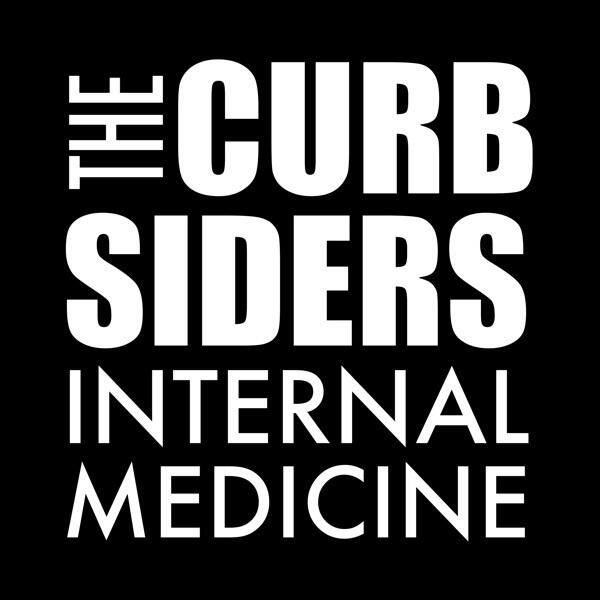
Meet The Curbsiders team, a national network of students, residents and clinician educators from across the country representing >20 different institutions. On the show we “curbside” the experts to deconstruct various topics in the world of medicine to provide listeners with clinical pearls, practice changing knowledge and bad puns.”
Sample episode:
Master the latest knowledge on the ongoing monkeypox outbreak with Dr. Boghuma Titanji (@Boghuma)! Learn how to recognize monkeypox in the clinic, how to test for monkeypox, how to approach management (including options for antiviral agents), and more.
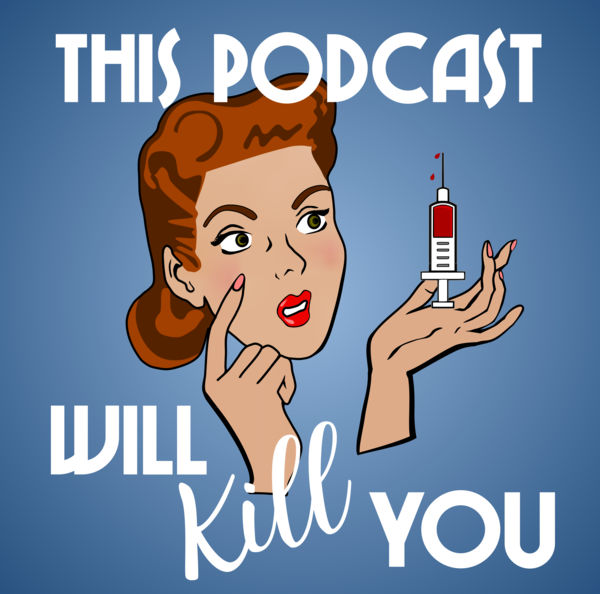
“Infectious disease + podcast = so much good dinner party conversation”. In this podcast, Erin Welsh and Erin Allmann Updyke, who are two graduate students studying disease ecology, present information on infectious diseases in a very digestible and informal way. Useful for interpreting practice – you can practice interpreting a less medically-dense explanation of how these diseases work.
Sample episode:
Episode 9. Tuberculosis: A Slow Burn
Today, we’re taking a page straight out of Dickens and talking about tuberculosis- a disease as rich in history as it is in bloody sputum. We’ll travel the path of an individual Mycobacterium tuberculosis as it makes it way down the respiratory tract of its victim and waits patiently, hidden and untouchable. We’ll learn why Nicole Kidman’s skinny physique was so en vogue in Moulin Rouge, talk about ‘The Royal Touch’, which isn’t quite as creepy as it sounds, cover enough of Koch’s postulates that you can give yourself an honorary microbiology degree, and oh so much more diseases work.

This is a brand-new podcasts, with the first episode published in July 2018. According to the description on the website, “Each episode of this intimate, highly-produced documentary program follows one person’s journey to solve a mystery about their body.
Sample episode:
Episode 2: Bleeding
KalaLea has terrible, awful periods. But don’t a lot of women? Well, yes and no. After more than a decade of suffering, KalaLea discovers that the cause of the pain is common for Black women like herself, but far from normal.

Described as “An examination of medical ethics and the practioners who define them.”, this podcast is definitely bite-sized: each episode is just over 3 minutes long.
Sample episode:
May 27, 2018: Is basic life sustaining healthcare a right or a privilege?
What happens when a undocumented immigrant needs kidney dialysis?

Health in a Heartbeat is a daily radio series that features two-minute segments providing consumer-health information and the latest news on medical research, patient-care breakthroughs and health-care industry trends. This is another bite-sized podcast with episodes of about 2 minutes in length. In addition, a transcript for each episode is available on the website right under the link for each episode.
Sample episode:
AUGUST 14, 2018: Pregnancy delayed a month by regular fast food diet
A burger and fries a day will keep a baby away. That’s the lesson from a recent Australian study that shows regular consumers of fast food take longer to get pregnant and have a two-fold increase in the risk of infertility
Video Podcasts
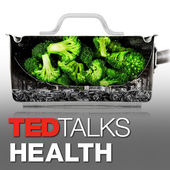
“From way-new medical breakthroughs to smart daily health habits, doctors and researchers share their discoveries about medicine and well-being onstage at the TED conference, TEDx events and partner events around the world. You can also download these and many other videos free on TED.com, with an interactive English transcript and subtitles in up to 80 languages.”
Sample episode:
What if we eliminated one of the world’s oldest diseases?
Thousands of years ago, ancient Nubians drew pictures on tomb walls of a terrible disease that turns the eyelids inside out and causes blindness. This disease, trachoma, is still a scourge in many parts of the world today — but it’s also completely preventable, says Caroline Harper. Armed with data from a global mapping project, Harper’s organization Sightsavers has a plan: to focus on countries where funding gaps stand in the way of eliminating the disease and ramp up efforts where the need is most severe. Learn more about their goal of consigning trachoma to the history books — and how you can help.

“Some of the world’s greatest scientists, doctors and medical researchers share their discoveries and visions onstage at the TED conference, TEDx events and partner events around the world. You can also download these and many other videos free on TED.com, with an interactive English transcript and subtitles in up to 80 languages.”
Sample episode:
Meet the microscopic life in your home — and on your face
Behold the microscopic jungle in and around you: tiny organisms living on your cheeks, under your sofa and in the soil in your backyard. We have an adversarial relationship with these microbes — we sanitize, exterminate and disinfect them — but according to microbiologist Anne Madden, they’re sources of new technologies and medicines waiting to be discovered. These microscopic alchemists aren’t aren’t gross, Madden says — they’re the future.
Mixed Bag: Non-Medical Podcast Episodes about Medicine and Doctors:
The Trick To Surviving A High-Stakes, High-Pressure Job? Try A Checklist by Hidden Brain
“Surgeon Atul Gawande still remembers the operation years ago that went catastrophically wrong. He was removing a tumor from the adrenal gland of a patient he refers to as Mr. Hagerman. Gawande had performed this procedure dozens of times before. But this case was particularly tricky. Mr. Hagerman’s tumor was behind his liver, nestled tightly against an important blood vessel known as the vena cava. Gawande was almost done when all of a sudden, he nicked the blood vessel.”
Use Only as Directed by This American Life
One of the country’s most popular over-the-counter painkillers — acetaminophen, the active ingredient in Tylenol — also kills the most people, according to data from the federal government. Over 150 Americans die each year on average after accidentally taking too much. And it requires a lot less to endanger you than you may know. We reported this alongside ProPublica. Their stories here and here.
Bad Medicine, Part 1: The Story of 98.6 by Freakomonics Radio
“We tend to think of medicine as a science, but for most of human history it has been scientific-ish at best. In the first episode of a three-part series, we look at the grotesque mistakes produced by centuries of trial-and-error, and ask whether the new era of evidence-based medicine is the solution.”
Bad Medicine, Part 2: (Drug) Trials and Tribulations by Freakomonics Radio
“How do so many ineffective and even dangerous drugs make it to market? One reason is that clinical trials are often run on “dream patients” who aren’t representative of a larger population. On the other hand, sometimes the only thing worse than being excluded from a drug trial is being included.”
Bad Medicine, Part 3: Death by Diagnosis by Freakomonics Radio
“By some estimates, medical error is the third-leading cause of death in the U.S. How can that be? And what’s to be done? Our third and final episode in this series offers some encouraging answers.”
Miracle Cures by This American Life
“This American Life contributor Davy Rothbart goes to Brazil with his deaf mother to try and get her hearing back from a miracle healer called Joao de Deus, or John of God. They had trouble agreeing whether the things they witnessed down there were miracles or not. Julia Whitty’s father’s cancer medication cost $47,000 a year if she bought it in the United States. It cost $1,200 a year if she bought it in a foreign country. But buying it there and bringing it here is forbidden by US law. She talks with Ira about the miraculous (and illegal) lengths she went to in order to sneak medication into the US and keep her father alive. “
The Most Ambitious Thing Humans Have Ever Attempted by Freakomonics Radio
“Sure, medical progress has been astounding. But today the U.S. spends more on healthcare than any other country, with so-so outcomes. Atul Gawande — cancer surgeon, public-health researcher, and best-selling author — has some simple ideas for treating a painfully complex system.”
Atul Gawande: Medicine Has Become A Team Sport — So How Do We Treat It Like One? by TED Radio Hour
“Surgeon Atul Gawande says doctors used to know and do everything themselves — like craftsmen, or cowboys. But those days are over. He argues for creating systems where clinicians all work together.”
Fronads by Radiolab
“At 28 years old, Annie Dauer was living a full life. She had a job she loved as a highschool PE teacher, a big family who lived nearby, and a serious boyfriend. Then, cancer struck. Annie would come to find out she had Stage 4 non-Hodgkin’s lymphoma. It was so aggressive, there was a real chance she might die. Her oncologists wanted her to start treatment immediately. Like, end-of-the-week immediately. But before Annie started treatment, she walked out of the doctor’s office and crossed the street to see a fertility doctor doing an experimental procedure that sounded like science fiction: ovary freezing.”
Placebo by RadioLab
“With new research demonstrating the startling power of the placebo effect, this hour of Radiolab examines the chemical consequences of belief and imagination.
Could the best medicine be no medicine at all? We take stock of the pharmacy in our brains, consider the symbolic power of the doctor coat, and visit the tent of a self-proclaimed faith healer.”
“The brain! It’s powerful! Two stories of the brain working for and against its owners.”
Scenes from A Transplant by This American Life
“An NPR reporter leaves her three-year-old son and heads to Omaha—for cancer treatment—a last chance to save her life. After years of covering stories about medicine, Rebecca Perl enters the hospital as a patient. She moves from the world of healthy people into the world of sick ones. What she sees and what she learns.”
Patient Zero by Radiolab
“The greatest mysteries have a shadowy figure at the center—someone who sets things in motion and holds the key to how the story unfolds. In epidemiology, this central character is known as Patient Zero—the case at the heart of an outbreak. This hour, Radiolab hunts for Patient Zeroes from all over the map. We start with the story of perhaps the most iconic Patient Zero of all time: Typhoid Mary. “
Blood by Radiolab
“From medicine to the movies, the horrifying to the holy, and history to the present day — we’re kinda obsessed with blood. This hour, we consider the power and magic of the red liquid that runs through our veins.”
How Triage Works by Stuff You Should Know
Triage is a system that provides immediate attention and categorization for medical emergencies that hopefully will never be a big part of your life. Unless you work in an ER. Learn all about the interesting history and current methods for this life saving system today.
Does the body replace itself? by Stuff You Should Know
Does the human body really replace itself every few years? The answer is yes, but different parts of the body do so at different rates. Learn all about which parts of your body are the speediest, and which take the longest to regenerate.
How X-rays Work by Stuff You Should Know
Like many huge discoveries, X-rays were accidentally stumbled upon. That serendipity led to a medical breakthrough still in use today. Learn about how X-rays are created and why they make such delightful images of our bones.
What’s the deal with blood types? by Stuff You Should Know
Blood types have one of the more interesting backstories in medical history. But as much as we’ve figured out about them and how they work, we still don’t know much about why we even have different blood types. Listen in for a truly fascinating look at your most essential bodily fluid.
How Motion Sickness Works by Stuff You Should Know
Motion sickness is the worst and hits about 25 to 40 percent of humans when they ride in cars, boats, or simply watch the wrong 3-D movie. Join us as we break down the science behind this nausea-inducing affliction.
How Rabies Works by Stuff You Should Know
Rabies may have gotten a lot of attention in the U.S. in the 70s and 80s, but it’s still an issue in developing countries. Learn all about this nasty virus in today’s episode. And stay away from racoons and bats.
How Amputation Works by Stuff You Should Know
Amputation is one of the oldest surgeries and an even older punishment for crime, but it wasn’t until the American Civil War and its 50,000 amputations that the procedure began to hit its stride. Learn about amputation and who it attracts in this episode.
How Circumcision Works by Stuff You Should Know
“Circumcision is a common practice in which the foreskin of a male’s penis is removed, typically as a baby. Josh and Chuck take a look at the origins, practices, and arguments for and against circumcision in this episode.”
How Electroconvulsive Therapy Works by Stuff You Should Know
With the exception of lobotomies, no other psychological treatment has a worse reputation. But thanks to some thoughtful tweaks, ECT has lately emerged from the dark ages and toward the respectable forefront of treatment for major depression.
Allergy Attack: How our bodies can overreact by Brains On!
“Pollen, peanuts, dust mites. These things aren’t poisonous – so why do some people’s bodies act like they are? In this episode, we’ll find out what happens during an allergic reaction, explore why only some people have allergies and hear about new treatments.
Bonus Podcast Ideas
For a list of recommendations of podcasts for Russian medical interpreters, click here.
For podcasts and other resources related to translation and interpretation, click here.
For a list of TV shows and books for medical interpreters, click here and here.
Conclusion
One of the cannons of National Code of Ethics for Interpreters in Healthcare states that ‘The interpreter strives to continually further his/her knowledge and skills.’ While this is a worthy pursuit, we all lead busy lives and we need to find a way to further our knowledge and skills that fits into our schedule. Podcasts might just be the way to do that!
This list of podcasts and podcast episodes will be updated as I come across new ones and I also welcome suggestions from my readers! Leave a comment below and I will be happy to add your suggestions to the list!
More Resources for Medical Interpereters
🌟 New! The Medical Interpreter Blog now brings you self-paced continuing education courses approved for CEUs by CCHI, IMIA/NBCMI and WA DSHS. Learn more here! 🌟
- For resources related to idioms for medical idioms click here and here.
- For a collection of resources for medical interpreters, click here.
- To learn about self-care for medical interpreters, click here.
- For practice activities for developing your note-taking skills, click here.
- For ideas on glossary building, click here.
- For recommendations for TV shows medical interpreters, click here.
- For recommendations for Russian-language podcasts and medical books click here and here.
- For a list of blogs, podcasts and YouTube channels for interpreters, click here.
More about the author: About Yuliya Speroff
Interested in my interpreter training services and would like to collaborate? Read more about the workshops I am able to offer in Interpreter Training
Want to get in touch? Contact me
Featured image: Image by Freepik

Leave a Reply